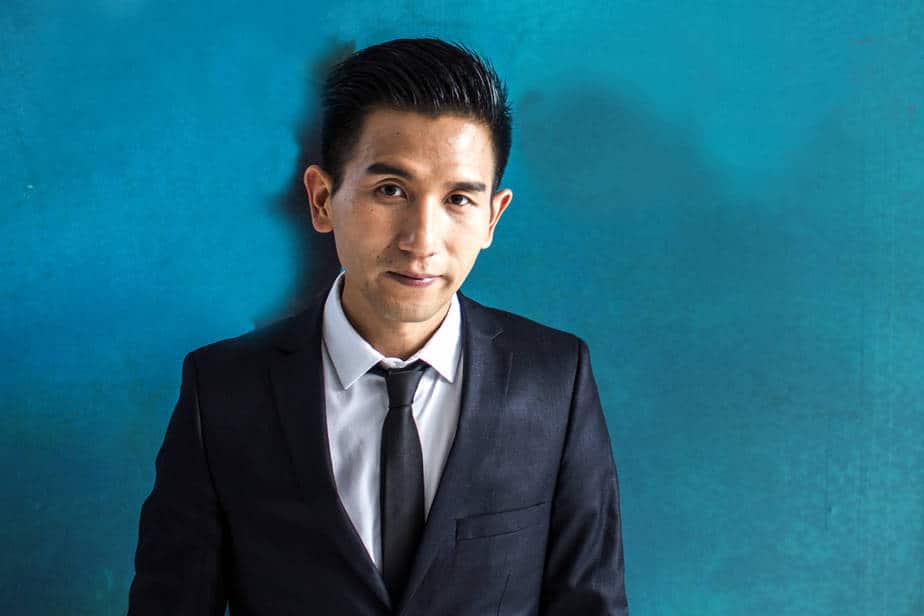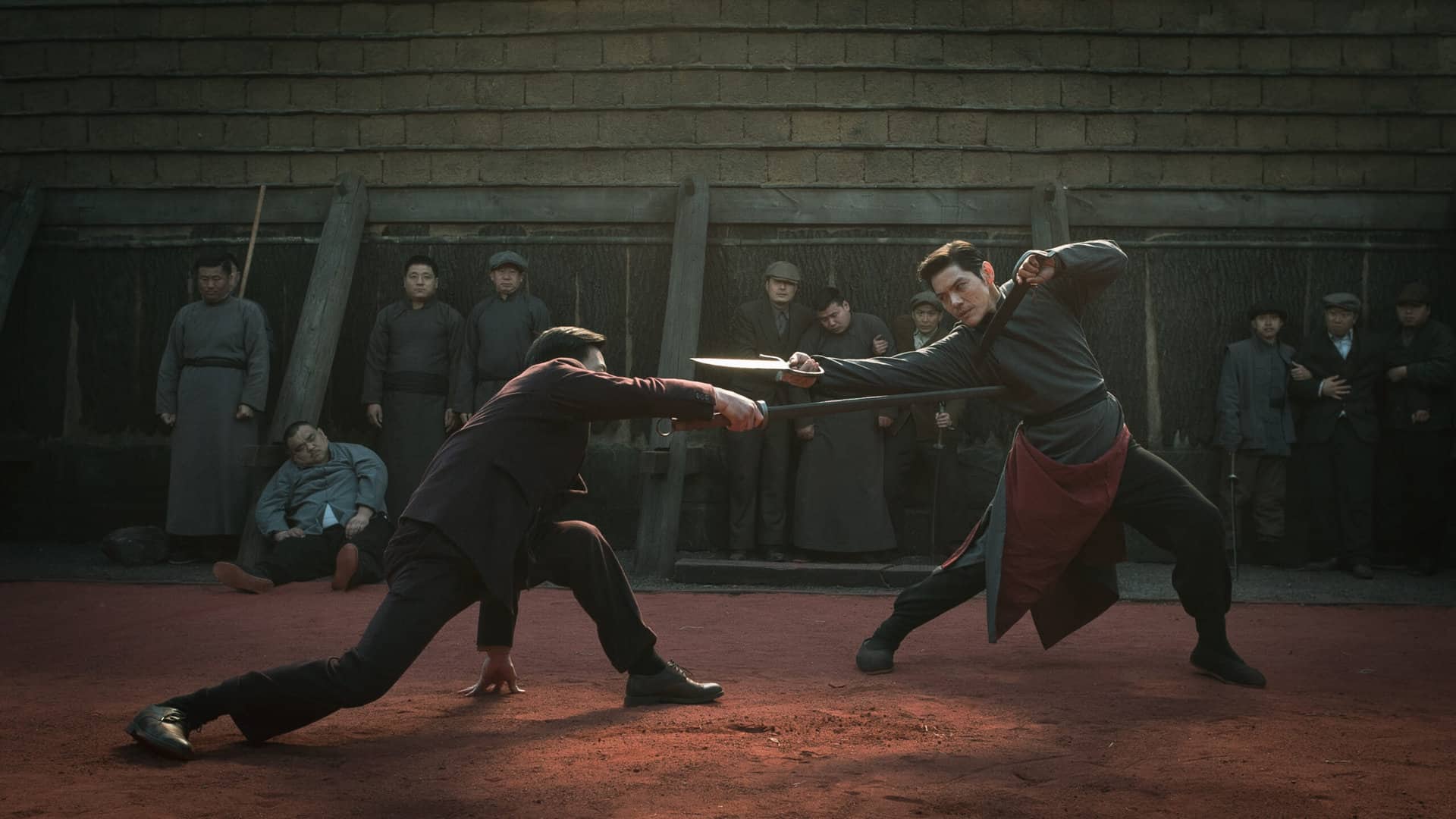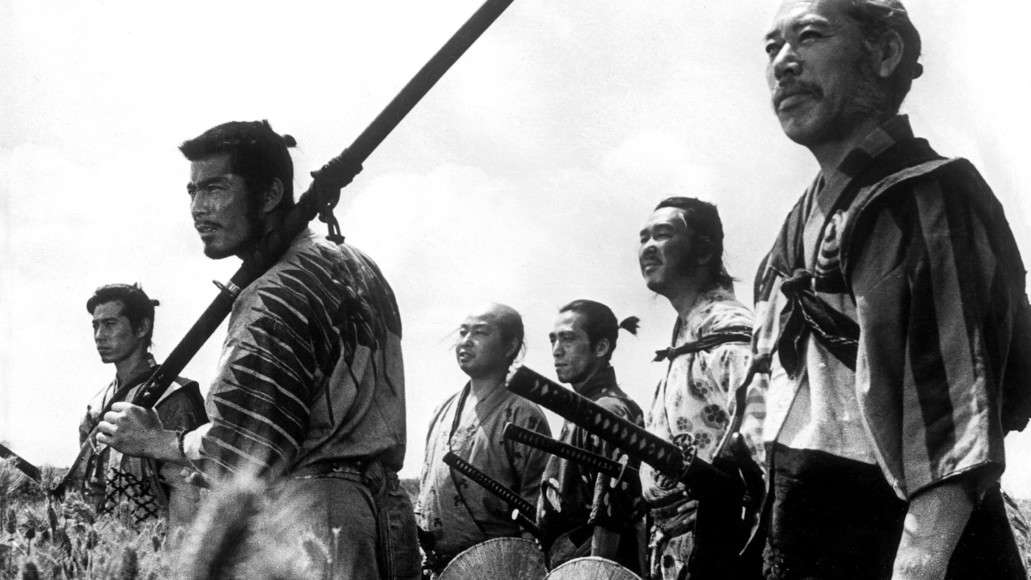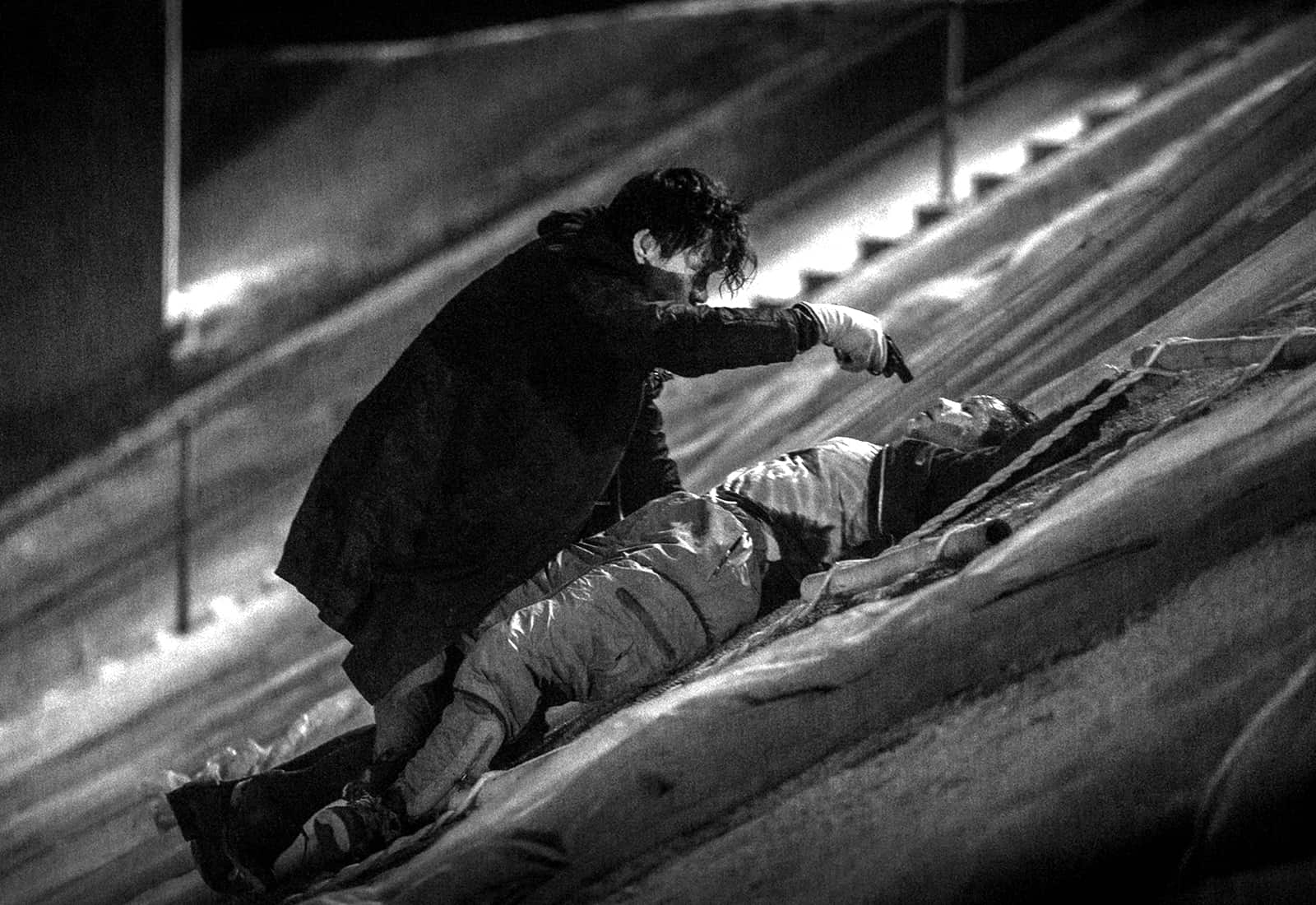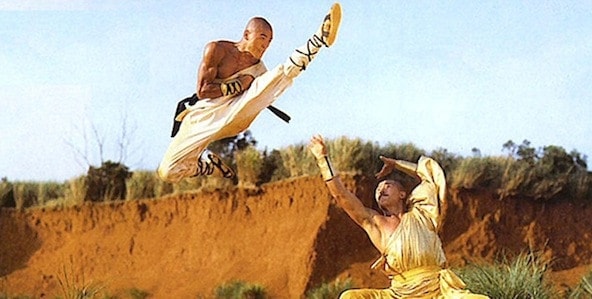Midi Z was born in 1982 in Burma as a son of a cook and a doctor. At the age of 16, he moved to Taiwan and in 2011 he renounced his Burmese citizenship. In the same year he shot, directed and produced his first feature film “Return to Burma”, a story about the shift in his home country after the presidential elections of 2010. Over the course of his career, he has made five feature films and three documentaries, which have screened at international festivals. Among the awards Midi Z has received are a Taipei Film Award for Best Director and the FEDEORA Award for Best Film at the Venice International Film Festival for his fourth feature “Road to Mandalay”. His most recent feature “Nina Wu” has received much critical acclaim and has been released in many countries.
On the occasion of the cinematic release of “Nina Wu” in Germany in September 2020 we interviewed the director about the production of the movie, his collaboration with DOP Florian Zinke and about the unique style of the film.
In “Nina Wu” you have used genre film tropes as a vehicle for an important social message. Do you consider this a pivotal moment for a shift in your creative process or a “one off”?
You know, the style of a film or its look is a tool. When you try to tell different stories, you should choose a different style or rather a suitable design for it.
The slapping scene is one of the most intense in the film. Was it difficult for Wu Ke-xi to shoot it?
Yes, that was quite difficult to shoot. When I read Wu Ke-xis's script for the first time, I had many favorites among the scenes, but there were also many I found to be quite intense. One was the slapping scene and the other took place during the rehearsal, when her character is asked to mimic a dog by the producer.
The slapping scene was difficult because, as a director, you ask the performer to act, but also to be honest. That means I am asking my actress in that particular scene to feel like Nina who is slapped, which is quite challenging also for the performer.
When it was time to shoot the scene we, of course, wanted to make it fit to our plan, to the storyboard and the vision expressed in the script. So we set up the cameras, using various types of lenses to get as many perspectives as possible. But then I gave up this idea, because I thought this kind of variation might also be limiting in a way, especially for the actress. I thought, maybe we could use improvisation, and so I talked about this with my actors, telling them they could go wherever they wanted with this, just follow your feeling and let it guide you.
Stylistically, we used hand-held camera during that scene, because we wanted the audience to know what Nina Wu is going through at that point. But we did not want to make the scene difficult for Wu Ke-xi and the other actor which is why I have them that kind of freedom.
If I am not mistaken, we shot this scene twenty or even forty times over a period of three days, so it was quite tough.
Do you feel that the relationship between directors and actresses is occasionally as harsh as this scene depicts?
Maybe. I mean we know in the film industry some actors and actresses can choose their projects, but especially in Asia, actresses are chosen for a role by the director and the producer, so they cannot choose and are dependent on another person's decision. Scenes like the slapping or the choking one represent in a very cruel and exaggerated way, the life and work of an artist and an actress in that industry and what they have to go through for their career.
Apart from Wu Ke-xi, can you give us some details about the rest of the casting process?
After I had revised Wu Ke-xi's script, we did some auditions in Taipei for the other roles. By the way, even the part of Nina Wu was part of this process, and we auditioned several actresses for it, but eventually I thought Wu Ke-xi should play the character. I hadn't asked her about the details of the story, but I thought it was based on her experiences and feelings, which made her perfect for the part of Nina Wu rather than another actress who had to rehearse and train in order to become that character.
Vivian Sung, who plays the part of Kiki, had many roles in Taiwanese youth drama, quite pulpy stuff. During the audition ,I thought she was so pure which would be perfect for the character of Kiki.
Kimi Hsia, who plays Women No.3 in “Nina Wu”, has been an actress for over 12 years and knows the industry quite well. During the auditions, we interviewed the actors and actresses and wanted to find out if there is a link between their experiences in the film industry to their on-screen character. This was also one way of finding out if an actress or actor would be suitable to play a character in the film.
How did you collaborate with German DP Florian Zinke to create that stylished atmosphere of hallucinations, reality and illusion?
I have an interesting and funny story which I have not told anyone before, which has to do with Florian.
During my career, the number of people on set has expanded, for example, for “Return to Burma” I was not only the director, but also the DOP, editor and producer. On “Poor Folk” there were three people on set and on “Ice Poison” it was a crew of six people.
When I read the script for “Nina Wu” it became clear to me that this story had to be told in very stylish way, very different from my other movies. The camera movement, the framing and all the other aspects of the film needed to support the story and be a vehicle for the storytelling process.
However, when it came to finding the right DOP who would be able to pull this off, I asked around, but the people I talked to had other projects and tight schedules. Four months before we started shooting, while I was preparing for another movie and staying in mainland China, I phoned a friend of mine, asking him whether he knew a good DOP. He then told me about Florian, who comes from Germany, but has been working in China for more than twenty years and can speak both Mandarin and English fluently. Florian had a lot of experiences working in Germany, but also overseas, which made him a suitable candidate for “Nina Wu”, since I was looking for someone with that kind of background.
I asked my friend to introduce me to Florian, but he told me this was impossible, because Florian was on his way to the airport where he wanted to book a flight to Florida and spend his holiday over there. Disappointed, I hung up the phone and thought that was it.

Suddenly, two hours later, my friend phoned me again telling me Florian did not take the flight and was now in his studio. This was at around 2 AM and I immediately took a taxi to my friend's studio to meet him. When I asked him what had happened, Florian told me that airport security had not accepted his passport because it had been torn in three places, which had happened because he flies a lot due to other projects he works on. The US passport control took a long, hard look at his passport and finally denied it. Florian then had the “brilliant” idea to pick a fight with these guys and started arguing, which sealed the case for them and for Florian as well, who was so fed up at that point, he decided to return to the city.
During that first conversation I pitched “Nina Wu” to him. He told me had had watched my previous films and was familiar with my way of telling a story, but also said he was perhaps not the kind of cinematographer I was looking for. After hearing my pitch, he told me that this kind of story demanded a very different style to my previous works and I agreed with him, telling him how I felt about the form of the film being a device to tell a story which can be changed. He loved what I had to say, and we quickly came to an agreement to work together, without even discussing his pay.
During pre-production, we watched a lot of films whose style was similar to “Nina Wu”, like movies from Yorgos Lanthimos or Nicholas Winding Refn. The story of “Nina Wu” deals with a character's psyche, a secret she hides inside, so the character should reflect this level of introspection. Besides the movies I mentioned, we also looked at various paintings, for example, Chris Cook's portraits of soldiers in the Vietnam War and how they capture loneliness.
Over the course of two weeks we made a plan about the way the camera should be set up and move in a scene, so I drew a rough storyboard of the film. I also explained the background of the characters in “Nina Wu” to Florian, because their backstory is quite complicated. The central character grew up in a military family with a background rooted in the beliefs of Kuomintang, a conservative political party in Taiwan. Her family, because of the military background, was quite affluent, but when her father became mentally ill, they spent a lot of money and eventually had to re-settle to rural Taiwan. This kind of story heavily influenced the way we shoot and where we shot the film.
Since you mention it, can you give us some details about the locations the film was shot and why the story was set in Taiwan?
We shot many scenes in buildings which have a historical significance and reflect the background of the main character. The movie, which Nina stars in, is a sort of spy romance and set in one of those buildings during the Cold War. Of course, given our budget, we were not able to build a set and instead went to shoot in these locations which helped us keep the budget down but which are also quite meaningful in other ways.
However, at the end of the day, it all boils down to performance, because I can accept a film with bad or no editing or story, but I simply cannot accept a bad performance. I made this very clear to my crew that the actor or actress takes center stage and decides where to go, and we have to be ready to allow them that kind of freedom.
Do you think you will keep shooting films about Myanmar?
Of course. If an artist is honest to him- or herself, he or she cannot avoid or deny his or her roots. Sometimes I really want to escape these roots, because it is not easy to shoot a film in Burma these days because it is a place I care for very much, but sometimes the locals do not like the story you are trying to tell. It is quite strange, because when I go to Burma I am considered a foreigner, but due to my Burmese background many Taiwanese see me as a foreigner too, which makes me a man without any place in the world so to speak.
To come back to the question, I left my hometown sixteen years ago, but cannot forget the stories and experiences connected to it. There are still a lot of them left untold, which is why I will definitely return to Burma and shoot movies over there. In fact, we are shooting a documentary in Burma at the moment.
Can you tell us something about projects you are working on at the moment?
I just finished writing two scripts. The first is a feature set in a mental asylum in Burma which I wrote during the lockdown. The other one I hope to be able to shoot in mainland China because it tells a story set in Beijing. So, let's see which project will happen first.
Thank you for the interesting conversation.


